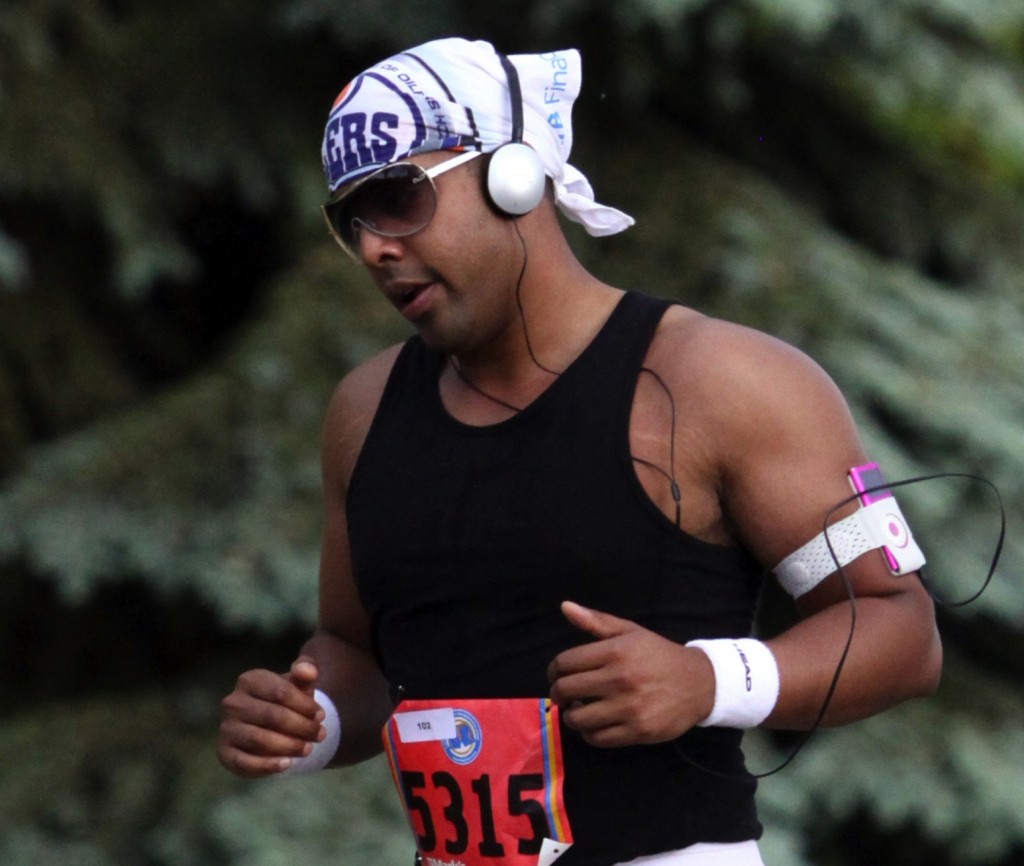Music Makes Working Out Hurt Less
Music doesn’t solely work by distracting us or syncing our motions up with its encouraging beat
It’s no secret that music makes exercise out more enjoyable, and scientists have been studying this phenomenon for the past ten years or so. Researchers suspect that music helps with exercise because it may automatically trigger the body to respond to the beat—increasing heart and breathing rates—likely because of connections between motor and auditory neurons in the brain.
Now, a new study adds another layer to our understanding of the connection between rhythms and exertion. Music doesn’t solely work by distracting us or syncing our motions up with a beat. Rather, in some instances, it actually reduces our perception of pain and effort.
Photo: Sangudo
To arrive at this conclusion, cognitive scientist Tom Fritz created a “musical ecstasy” machine based upon musical traditions of the Maga ethnic group in Africa. National Geographic explains how this worked:
He rigged up several pieces of gym equipment to a computer so that using the machines produces electronic music.
Fritz calls the system jymmin — “a mixture of jammin’, like Bob Marley, and gym,” he says.
Here’s a video of Fritz jamming to his jymmin creation:
He recruited 61 non-athletes to try the system out. Sometimes they listened to music passively and sometimes they engaged in a group jymmin session, always doing both activities in trios. Afterwards, Fritz asked them how taxing they found those exercise sessions. Here’s NatGeo on the results:
For 53 of the 61 participants, their perceived exertion was lower during the jymmin session than the passive-listening session, the study found. That’s interesting, Fritz says, because when jymmin you can’t be distracted from your ‘proprioception’ — the awareness of your body’s position in space and the force it’s exerting. On the contrary, you must focus on your muscles. “You’re playing a melody and then remembering, OK, if I’m at this position, then I can make this tone,” he says. “Your proprioception is your guide to playing the music.”
Why this is so, however, remains unclear. It very well could be because you don’t want to let you buddies down by ducking out before the song is finished. On the other hand, the jymmin method may tap into the sense that we are truly part of the music, a feeling scientists refer to as “musical agency,” NatGeo says. Or it could simply come back to the simplest explanation. While focusing on all of those sweet beats, your mind may be distracted from the pain.
More from Smithsonian.com:
When You Work Out to Music, Your Whole Body Syncs Up to Its Rhythm
/https://tf-cmsv2-smithsonianmag-media.s3.amazonaws.com/accounts/headshot/Rachel-Nuwer-240.jpg)

/https://tf-cmsv2-smithsonianmag-media.s3.amazonaws.com/accounts/headshot/Rachel-Nuwer-240.jpg)